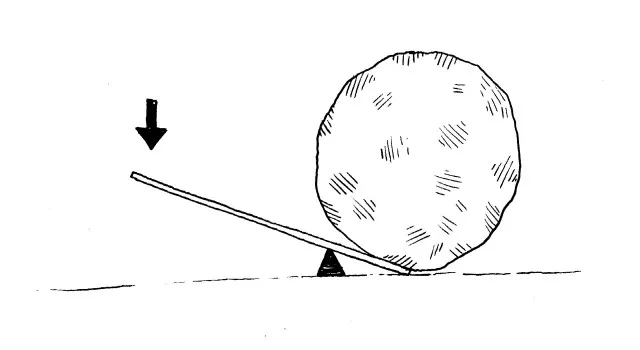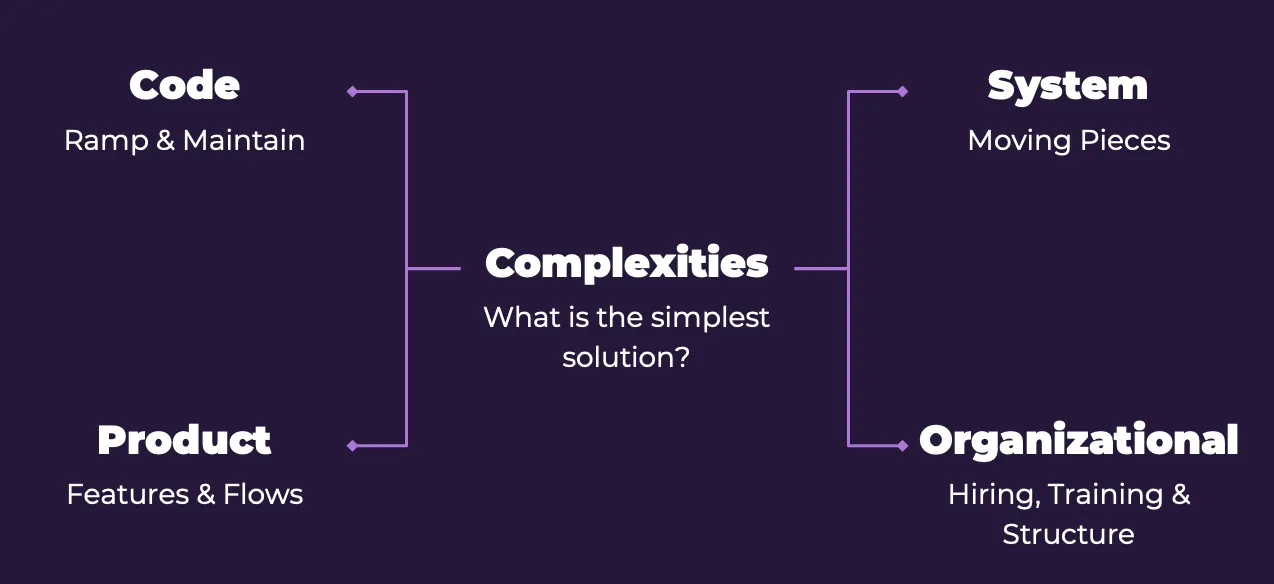Becoming an Effective Engineer

Becoming an Effective Engineer
Throughout our careers, we often wind up in focus mode—working late nights and weekends, launching products that don’t meet expectations. This makes us question: was it all worth it?
Your scientists were so preoccupied with whether or not they could, they didn’t stop to think if they should.
— Dr. Ian Malcolm
I’ve worked at companies like Intel, Gojek, Sayurbox, and Sinarmas, across organizations from tiny startups to large conglomerates. Having been both an individual contributor and a leader, I’ve realized that one guiding metric separates the great from the rest: leverage.
Leverage = Impact produced / Time invested

Think of leverage like using a tool to move a large boulder: the right force and angle get it moving more efficiently. You may also know this as Return on Investment (ROI).
You can increase your leverage by:
- Increasing impact
- Decreasing time
- Working on something else with higher leverage
Remember, good intentions don’t necessarily produce good results.
Meetings without purpose, urgent bugs, firefighting, and unproductive debates all eat into your time without meaningful output.
So, how do you start?
Edmond Lau, author of The Effective Engineer, outlines 5 high-leverage activities:
- Optimize for learning
- Invest in iteration speed
- Validate your ideas aggressively
- Minimize operational burden
- Build a great engineering culture
1. Optimize for learning
Knowledge compounds over time, and the right learning habits accelerate growth.
A helpful resource: roadmap.sh, which maps out career progression for engineers.
You’ll notice that some engineers with the same years of experience vary widely in depth and breadth of knowledge. That’s because:
“It’s not the years of experience that counts. It’s the experience in your years.”
If your workplace doesn’t offer enough challenge, take ownership of your learning via side projects, books, blogs, or by finding new environments.
2. Invest in iteration speed
Great engineers build or pay for tools that speed up processes.
Fortunately as engineers, we have the ability to build our own tools. Especially if a solution doesn’t exist for our problem.
At Gojek, I built a CLI tool (see go-s2 on GitHub) that reduced a process from one day to just a few minutes—saving time and increasing impact.
Look for repetitive, manual workflows and automate them where possible.
3. Validate ideas aggressively
The biggest mistake? Building entire solutions without testing their viability.
“Let’s build an app for that!”
But building full apps is time-consuming and expensive. Try leaner validations:
- To test a yoga app idea, start with an Instagram community.
- For a PDF-export feature, put in a fake button and track clicks or display “coming soon.”
My team at S‑Quantum Engine (SQE) tested low-fidelity designs before investing in high-fidelity versions to ensure we built what users actually needed.
4. Minimize operational burden

Operational burden acts like debt. It comes in several forms:
- Code complexity: harder to read, maintain, or modify
- Product complexity: excessive features slow progress
- System complexity: more components means more issues
- Organizational complexity: complexity increases hiring, specialization, and training needs
Ask yourself daily: “How can this be simpler?” Managing complexity enables faster and smoother progress.
5. Build a great engineering culture
Hiring great engineers is one thing—but retaining them is another.
Engineers want to work on meaningful, impactful work—not just tech debt or firefighting.
As an individual contributor or leader, promote a culture of impact by staying product-minded, involving engineers in decision-making, and minimizing redundant tasks.
Final thoughts
Congrats on reading this far! I hope these strategies help you become a more effective engineer. Start applying them today.
Follow me on X for more @jason_ganub!